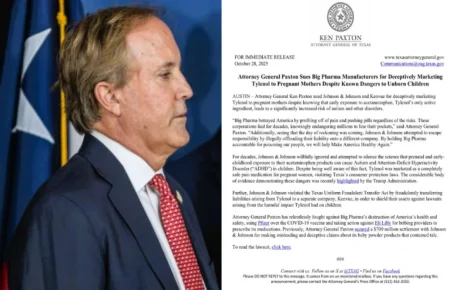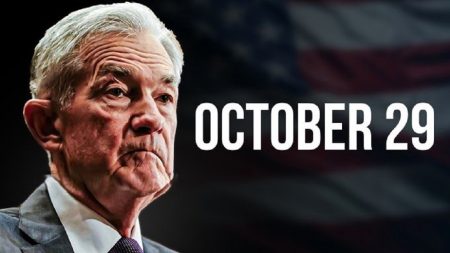The BOJ Bombshell: 12 U.S. Giants Cut Ties with Credit Card Providers, U.S. Banking Giants Stage Massive Exodus
Medeea Greere, an independent publisher, is now on Telegram at https://t.me/AMGNEWS2022 and exists only on reader support as we publish Truth, Freedom and Love for public awareness. Thank You for your support!
In a shocking turn of events, twelve of the United States’ most influential banks have delivered a resounding blow to the traditional financial landscape. Effective midnight on Thursday, December 14th, these banking behemoths have formally severed ties with their credit card providers, heralding a seismic shift in the industry.
The Exodus Begins: U.S. Banks Bid Farewell to Credit Card Providers
As the clock ticks down to the historic moment, the banking giants have sent formal notices to their credit card partners, announcing the termination of their services. The move, unprecedented in its scale and audacity, raises myriad questions about the future of financial institutions and their relationships with credit providers.
This strategic maneuver has sent shockwaves through the global financial ecosystem, prompting analysts to speculate on the motives behind the sudden and synchronized exodus. The implications of this decision extend far beyond the borders of the United States, influencing the very foundations of banking on a global scale.
Global Financial Landscape in Flux: Physical Branches on the Chopping Block
Coinciding with this bombshell announcement is the escalating trend of financial institutions worldwide shuttering their physical branches. The once-steady cadence of brick-and-mortar closures has transformed into a frenetic race towards a digital future.
This mass closure phenomenon is reshaping the way customers interact with their banks, pushing them towards online platforms and mobile apps. The implications for the workforce are staggering, as thousands of employees face an uncertain future amid the wave of branch closures.
BOJ Declared ‘Brain Dead’: Unraveling the Mystery Behind the Bold Statement
In the midst of these tectonic shifts in the financial sector, a cryptic statement has emerged: “BOJ brain dead.” Analysts and industry experts are scrambling to decipher the meaning behind this bold proclamation. Does it signal a crisis at the Bank of Japan, or is it a coded message reflecting the broader state of central banking globally?
The acronym “BOJ” typically refers to the Bank of Japan, one of the world’s most influential central banks. However, the declaration of it being “brain dead” adds an element of intrigue and urgency to an already tumultuous financial landscape.
In the next sections, we delve into the specifics of each development, unraveling the motives behind the banks’ decision to sever ties with credit card providers, exploring the global shift towards digital banking, and attempting to decode the mysterious message regarding the Bank of Japan.
The Great Divide: U.S. Banks and Credit Card Providers Part Ways
At the heart of this financial upheaval lies the decision by twelve major U.S. banks to cease their reliance on credit card providers. The formal notices, sent with an air of finality, signal a paradigm shift in the relationships between financial institutions and their longstanding partners.
The Motive:
While the motives behind this drastic move remain shrouded in secrecy, industry insiders speculate that the banks are seeking to reclaim control over their financial ecosystems. By cutting ties with credit card providers, these giants aim to redefine the rules of engagement, possibly paving the way for the introduction of proprietary payment systems and reducing dependence on external partners.
ALSO: Trump: Tremendous US Presidents! Join the Chosen Few and Embrace Your Destiny!
Global Ramifications:
The reverberations of this decision are not confined to the borders of the United States. International credit card providers are already feeling the pinch as they grapple with the sudden loss of some of their most significant clients. The global financial community is now bracing itself for a domino effect, as other institutions contemplate following in the footsteps of their U.S. counterparts.
Digital Tsunami: The Accelerating Closure of Physical Branches
Simultaneously, financial institutions across the globe are accelerating the closure of their physical branches, propelling the world towards a digital banking future. This trend, which was gaining momentum gradually, has now reached a fever pitch, leaving traditional banking models in its wake.
The Shift to Digital:
Customers, once accustomed to conducting their financial affairs in person, are now being nudged towards digital platforms. Online banking, mobile apps, and virtual services are becoming the new normal, drastically altering the dynamics between banks and their clientele. The convenience of digital transactions is reshaping the customer experience, but at what cost to the traditional workforce?
Workforce Fallout:
As the closure of physical branches becomes an industry norm, thousands of bank employees find themselves at the mercy of an uncertain job market. The digitization of banking services comes with a human cost, raising concerns about job displacement, retraining, and the broader societal impact of a rapidly evolving financial landscape.
BOJ’s Enigmatic Declaration: Unraveling the Central Banking Conundrum
Adding an extra layer of complexity to the unfolding financial drama is the cryptic message declaring the Bank of Japan (BOJ) as “brain dead.” This bold statement has left analysts scrambling for clues, trying to discern whether it is a metaphorical representation of a systemic crisis or a targeted critique of the central banking institution.
Central Banking Crisis?
The term “brain dead” implies a state of irreparable dysfunction or incompetence. If applied literally to the Bank of Japan, it would suggest a crisis of unprecedented proportions within one of the world’s most influential central banks. The ramifications of such a crisis would extend far beyond Japan, sending shockwaves through the global financial system.
WARNING: Leaked CIA Research Reveals Brain Wave Ritual Attracts Money To You…
Metaphor or Reality?
Alternatively, this declaration might be a metaphorical critique of the broader state of central banking globally. It could be a commentary on the perceived inadequacies and shortcomings of the central banking model, raising questions about its efficacy in navigating the complex challenges of the modern financial landscape.
A Brave New Financial World Emerges
As the financial world undergoes a metamorphosis of unprecedented scale, one thing is clear: we are on the brink of a new era. The decisions by U.S. banks to sever ties with credit card providers, the accelerating closure of physical branches globally, and the enigmatic declaration regarding the Bank of Japan collectively paint a picture of a financial landscape in flux.
Pray For The Best, Prepare For The Worst – Be Ready:
The digital tsunami sweeping through the industry is reshaping the way we bank, challenging established norms, and forcing institutions to adapt or face obsolescence. The workforce faces a challenging transition, and the fate of traditional banking models hangs in the balance.
Amid the chaos, one can’t help but wonder: Are we witnessing the birth pangs of a more agile and resilient financial system, or are we hurtling towards an uncertain and tumultuous future? Only time will reveal the true nature of this financial revolution, but one thing is for certain — the old guard is making way for a brave new financial world.
In the words of an anonymous industry insider, “The tides are turning, and those who fail to ride the wave of change risk being left behind in the annals of financial history.” The only certainty in this era of uncertainty is that the world of finance, as we know it, will never be the same again.
ALERT ALERT ALERT: Financial Catastrophe Unfolds as Global Economic Giants Collapse! ISO 20022, Basel III, and the $34 Trillion Nightmare
Starlink, QFS, Project Odin, MOSSAD Satellites and the Biggest Secrets Unfolding in our Cosmos
Starlink, QFS, Project Odin, MOSSAD Satellites and the Biggest Secrets Unfolding in our Cosmos






![BREAKING: For the 13TH Time, Senate Democrats REFUSE to Pay the Troops and Reopen the Government — AGAIN. Schumer Kills Clean GOP Bill as Federal Workers Turn on Democrats [VIDEO]](https://amg-news.com/wp-content/uploads/2025/10/For-the-13TH-Time-Senate-Democrats-REFUSE-to-Pay-the-Troops-and-Reopen-the-Government-450x253.png)


